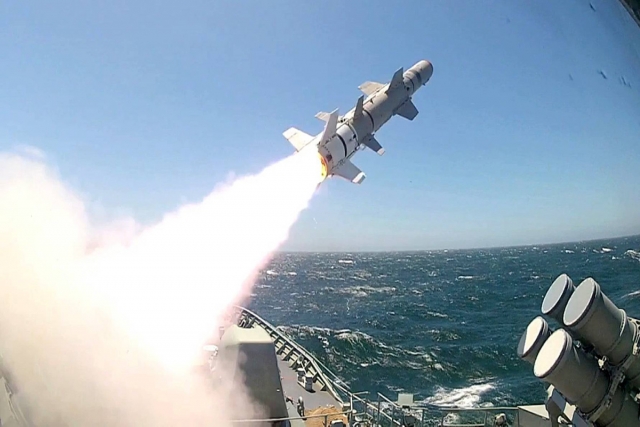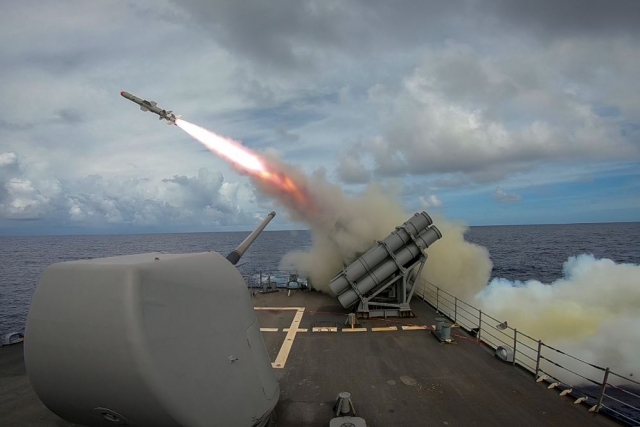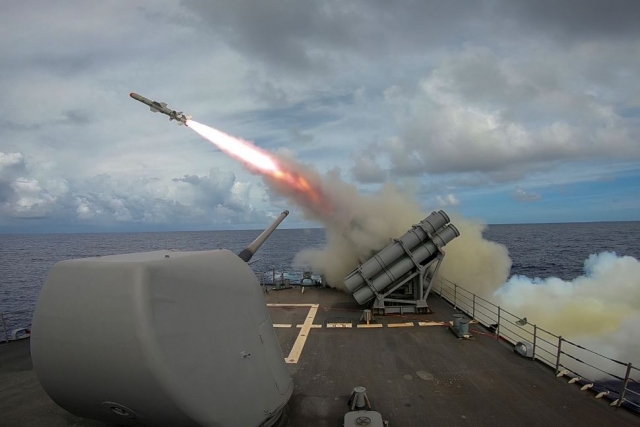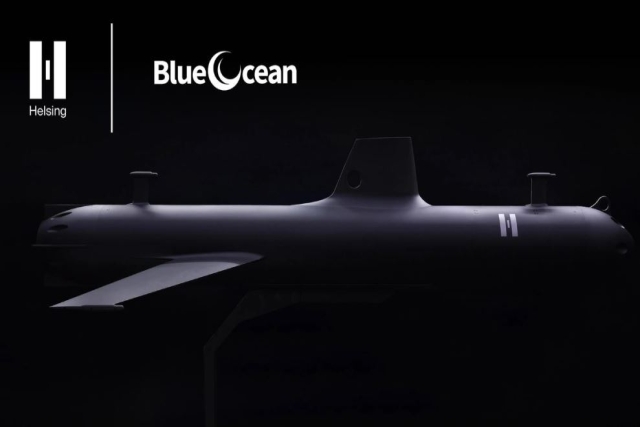Harpoon Missiles Pose ‘Real Danger’ but can be Defeated: Russian Expert

The American Harpoon anti-ship cruise missile poses real danger but can be destroyed by Russian air defenses, an expert told state media.
"If we speak about the interception capabilities, we can pinpoint Harpoon by all modern ship-based radar stations and ground-based air defense systems. The Russian Army operates a whole range of surface-to-air missile systems that can intercept aerial targets at ranges varying from 3 km to 400 km: namely, the Pantsir-S, Tor, Buk and long-range S-300, S-400 complexes. All of them are capable of spotting and wiping out Harpoons," Editor-in-Chief of the Military-Technical Cooperation magazine Dmitry Litovkin told TASS on Monday.
This does not mean that the Harpoon missile cannot reach its target, the expert pointed out.
"Missiles of this class pose a real danger due to the flight’s low-altitude profile and now also due to the possibility of the homing warhead’s modification," he elaborated.
Harpoon is a rival of the Russian Kh-35 cruise missile and the Ukrainian Neptune weapon but with one distinctive feature.
"This primarily pertains to the homing warhead. In the 1990s, the Americans were eager to buy the Russian-Ukrainian homing warhead. The point is that, as compared to other cruise missiles scanning the space to ferret out the target, the Kh-35 flies in a ‘deaf mode,’ receiving signals from the target of the attack. Moreover, it seems to have been upgraded to operate in a swarm as compared to the Ukrainian model," Litovkin said.
On July 8, Russia’s Defense Ministry announced that sea-launched precision weapons had eliminated two Harpoon missile launchers in the Odessa Region delivered by Great Britain.
Harpoon missiles are manufactured in three versions: AGM-84 air-launched, RGM-84 ship-launched and UGM-84 undersea-launched weapons. The missile develops a subsonic speed and can carry a 225 kg warhead. It has an operational range of 120 km to 280 km, depending on more than 10 modifications available at present. The RGM-84D can alter its flight direction at low altitudes, which makes it possible to employ it in closed water areas and around islands to conceal the true direction of its launch.











